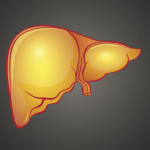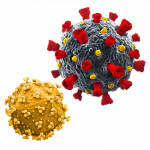At least two protease inhibitors (PIs)—Norvir (ritonavir) and Invirase (saquinavir)—might offer additional health benefits beyond their direct virus-fighting ability, according to a study published June 10 in PLoS Medicine. Should other studies confirm this finding, it could affect how current protease inhibitors are used and prompt new research on this class of drugs.
Some HIV drugs are more effective than others. Typically, the difference in efficacy can be explained by either the degree of viral suppression or vulnerability to the development of drug resistance by the virus. A few drugs, however, have consistently performed better than others in ways that aren’t easily accounted for by their direct ability to control the virus. An emerging theory to explain these additional health benefits is that some drugs affect inflammation, which is the cellular response to threats and injury.
Experts now believe that chronic cellular inflammation is responsible for the increased rates of cardiovascular disease and certain cancers in people living with HIV. Operating on a hunch that at least some of the drugs in the PI class might reduce inflammation, Maria Letizia Giardino Torchia, PhD, from the University of Naples Federico II in Italy, and her colleagues examined how PIs affect the maturation of dendritic cells (DC), a group of white blood cells.
When DCs are immature, they patrol the body looking for invaders. As they mature, the cells take on new responsibilities, such as recruiting CD4s to lymph nodes and prompting the production of natural killer (NK) cells. NK cells directly kill infected or damaged cells and shut down the immune response once a pathogen has been dealt with.
Giardino’s team found that two PIs in particular, Norvir and Invirase, caused DCs to mature in an unusual, but beneficial, fashion: The new cells were weak and much less effective at responding to a type of gut bacteria that AIDS researchers think escapes into the blood stream and causes chronic inflammation. As one of the suspected problems in HIV is chronically excessive activation of the immune system to these bacteria, having DCs with a weaker response is actually a good thing. What’s more, the aberrant DCs interacted with NK cells differently than their normal brethren, causing the NK cells to more effectively keep inflammation under control.
Further studies will be needed to confirm these findings and to determine whether the process described in this study also occurs in the body. If these results can be duplicated, however, it could also mean that some protease inhibitors could be used to treat other types of conditions, such as autoimmune disorders and certain types of cancers.
The authors conclude: “These unexpected properties might contribute to limit inflammation and viral spreading in HIV-1 infected patients under PIs treatment and open novel therapeutical perspectives for this class of drugs as immunomodulators in autoimmunity and cancer.”
Advertisement
Advertisement
Advertisement






Comments
Comments